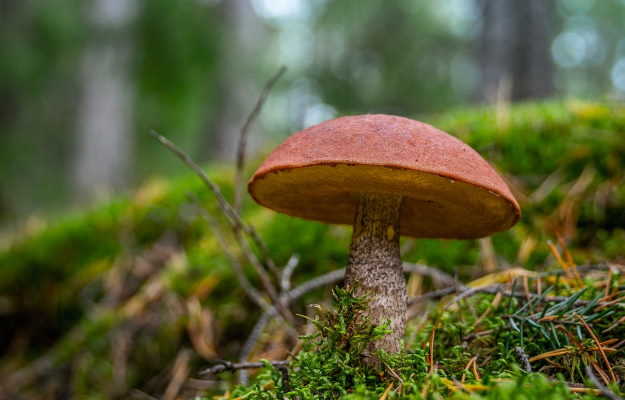Psychotherapy and psilocybin, a naturally occurring psychedelic prodrug, can outperform commonly used antidepressant medicines, according to a new study involving 27 patients diagnosed with major depressive disorder.
A prodrug is a chemical that doesn’t have any medicinal properties on its own, but it is broken down by the body into a chemical that does have a therapeutic effect. Another example of such a prodrug is salicin in willow bark which in the body becomes salicylic acid, the active ingredient in aspirin.
For the study (done at the Center for Psychedelic and Consciousness Research at Johns Hopkins Bayview Medical Center in Baltimore, Maryland), the participants were given two doses of psilocybin with about 11 hours of psychotherapy over eight weeks but no other depression medication.
The researchers, led by Alan Davis of both Johns Hopkins University and Ohio State University, found that psilocybin, which becomes psilocin in the body, can be four times more effective than usual antidepressants like serotonin reuptake inhibitors. They published their findings in JAMA Psychiatry on 4 November 2020.
Depression affects over 264 million people worldwide—by comparison, COVID-19 has affected around 48.7 million people as of 6 November 2020. In India, the prevalence of depressive disorders was 45.7 million in 2017 as per the Global Burden of Disease Study 1990-2017.
Scientists have of course been experimenting with therapies and medicines to address this epidemic. Yet only recently have they been able to test some psychoactive substances—or substances with mind-altering abilities—for their healing potential for mental health. Case in point: The US Food and Drug Administration approved esketamine, a nasal spray based on the party drug ketamine, for treatment-resistant depression in March 2019.
How does psilocybin work in depression patients?
Previous studies have shown that psilocybin may have both serotogenic and glutamatergic effects. Meaning, it affects two key neurotransmitters in the brain: serotonin and glutamate. Building on this, the current study authors said that psilocybin acts fast like ketamine-like medications but its effects last longer (four weeks compared with a maximum of two weeks for ketamine) and it is less addictive.
Psilocybin is a psychoactive substance. Its effects on the brain have been compared with LSD and DMT. For this study, the researchers created proper conditions to make the therapy as smooth and safe for the participants as possible.
Writing in JAMA Psychiatry, the authors said: “Although effective pharmacotherapies for depression are available, these drugs have limited efficacy, produce adverse effects, and are associated with patient adherence problems…. The combined serotonergic and glutamatergic action of psilocybin (a classic hallucinogen) and the preliminary evidence of the antidepressant effects of psilocybin-assisted therapy (among patients with life-threatening cancer or patients with treatment-resistant depression) indicate the potential of psilocybin-assisted therapy as a novel antidepressant intervention…. Moreover, psilocybin has lower addiction liability and toxic effects compared with ketamine and is generally not associated with long-term perceptual, cognitive, or neurological dysfunction.”















